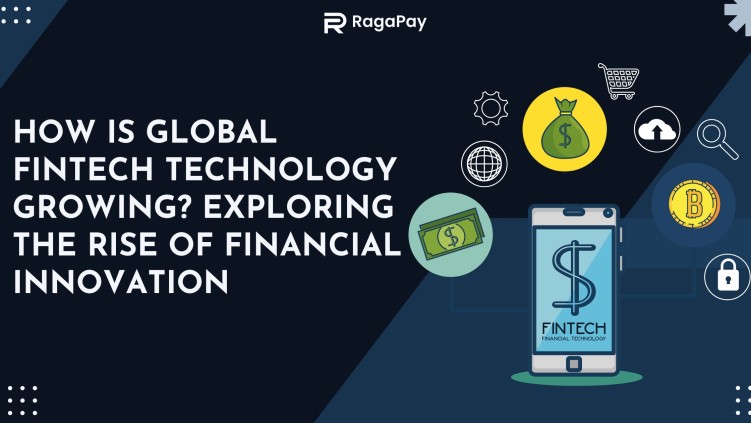Introduction:
In recent years, the fintech (financial technology) industry has experienced exponential growth, revolutionising the way we manage our finances and conduct transactions. Fintech encompasses a wide range of technologies and innovations that enhance financial services, from mobile banking apps to blockchain-based cryptocurrencies. In this blog, we will explore the remarkable growth of global fintech technology and its impact on various sectors, including banking, payments, investment, and beyond.
The Rise of Digital Banking:
Digital banking has emerged as a cornerstone of fintech innovation. Traditional banking models are being disrupted by online and mobile banking platforms that provide convenient, secure, and user-friendly experiences. Customers can now perform banking activities such as account management, fund transfers, bill payments, and even applying for loans, all from the comfort of their devices. The rapid adoption of digital banking has democratised financial services, reaching the unbanked and underbanked populations worldwide.
Transformation of Payments:
The fintech revolution has dramatically transformed the payments landscape. Traditional payment methods such as cash and checks are increasingly being replaced by digital payment solutions. Mobile payment apps, contactless payments, and digital wallets have gained popularity, offering speed, convenience, and enhanced security. Fintech innovations like peer-to-peer (P2P) payment platforms have also revolutionised the way people send and receive money globally.
Blockchain and Cryptocurrencies:
Blockchain technology, the underlying foundation of cryptocurrencies like Bitcoin and Ethereum, has disrupted the financial industry by offering secure, decentralised, and transparent transactions. Blockchain’s potential extends beyond digital currencies, with applications in smart contracts, supply chain management, and identity verification. The growing interest in cryptocurrencies has led to the emergence of crypto exchanges, investment platforms, and decentralised finance (DeFi) solutions, revolutionising traditional investment avenues.
Fintech and Financial Inclusion:
One of the key drivers of fintech growth is its ability to promote financial inclusion. Fintech solutions are making financial services accessible to previously underserved populations in both developed and developing countries. Mobile banking apps, microfinance platforms, and digital wallets have empowered individuals and businesses, enabling them to participate in the global economy, access credit, and manage their finances effectively.
Artificial Intelligence (AI) and Machine Learning (ML):
The integration of AI and ML technologies in fintech has revolutionised various aspects of financial services. AI-powered chatbots provide personalised customer support, while ML algorithms analyse vast amounts of data to identify patterns and make accurate predictions for risk assessment and fraud detection. Robo-advisors, driven by AI, are transforming the investment landscape by offering automated and low-cost investment advisory services to retail investors.
Regulatory Landscape and Collaboration:
As the fintech industry continues to grow, regulatory frameworks are evolving to ensure consumer protection, privacy, and stability. Regulatory sandboxes and open banking initiatives are fostering collaboration between traditional financial institutions and fintech startups. This collaboration encourages innovation, ensures compliance, and creates opportunities for partnerships and synergies between established players and agile fintech disruptors.
Conclusion:
The growth of global fintech technology is reshaping the financial landscape, offering innovative solutions that enhance convenience, accessibility, and efficiency for individuals and businesses worldwide. Digital banking, blockchain, cryptocurrencies, AI, and ML are just a few examples of the fintech revolution that is accelerating financial inclusion, transforming payments, and reinventing traditional financial services. As the fintech industry continues to expand and mature, its impact will be felt across industries, driving economic growth, and unlocking new possibilities for a more connected and technologically advanced global financial ecosystem.

